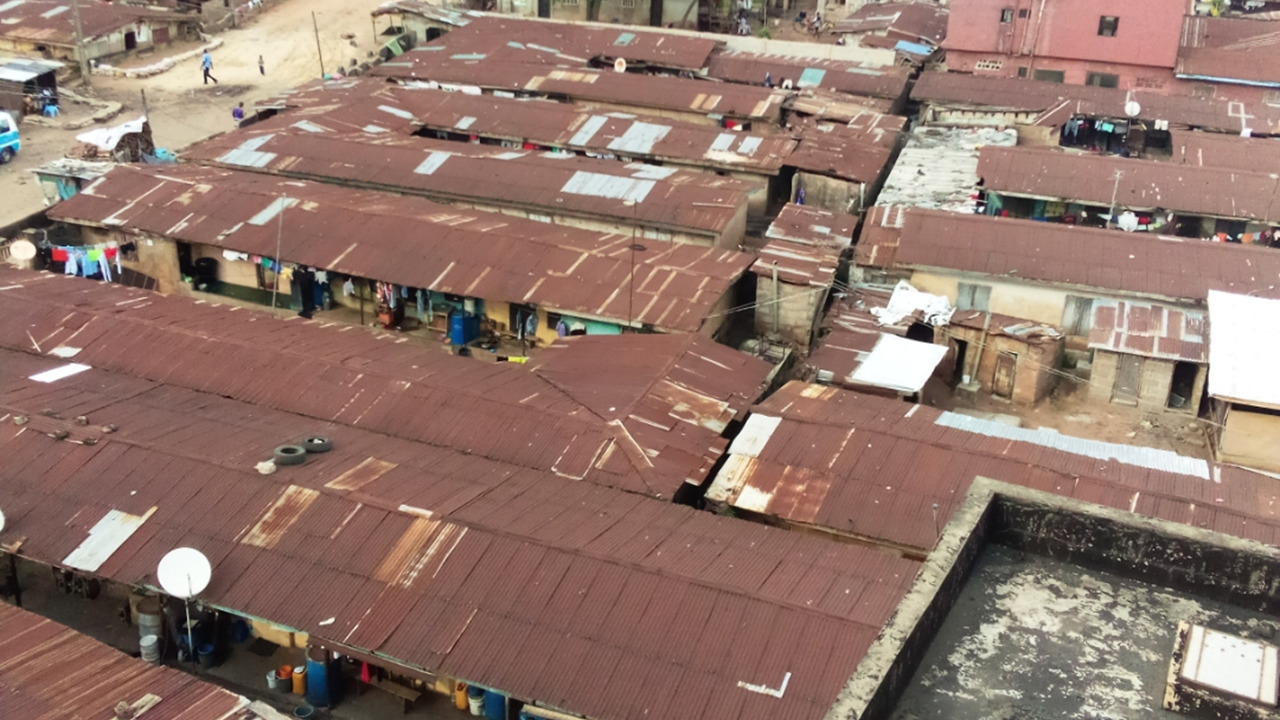
Nigeria: Developing and institutionalising health system linkages between the public and informal sectors for improving the equitable provision and use of appropriate essential health services in urban slums
With an estimated urban population growth rate of 4.3%, Nigeria’s urban population is expected to double by 2050.[1] The notable consequence of the rapid urbanisation that is taking place in the country is the expansion and increase in numbers of informal settlements within and around large cities. These informal settlements, referred to as urban slums, are characterised by poor housing, lack of basic amenities and poor access to urban resources, including health, nutrition and education.
Rapid urbanisation and the growth of unplanned urban slums have necessitated global attention towards ensuring social inclusion and equitable access to urban resources, particularly for vulnerable groups. A critical area of intense concern in Nigeria, and other low resource settings, is access to comprehensive and quality health services in urban slums. Urban slums have a relatively higher burden of communicable disease, and this can be attributed to overcrowding, poor ventilation, low economic status, and low literacy level. Moreover, financial access to quality healthcare for urban slum dwellers is further limited due to lack of social health insurance and heavy reliance on out-of-pocket payments. Hence, ensuring access to quality and affordable healthcare for this group of people should be prioritised.
Informal healthcare providers (IHPs) are a crucial source of healthcare in urban slums, essentially filling the gap caused by the absence of formal healthcare providers (FHPs). Informal healthcare providers include patent medicine vendors (PMVs), village health workers, traditional birth attendants (TBA), traditional healers and itinerant (travelling) drugs vendors, among others. These categories of IHPs are ubiquitous, they provide affordable healthcare to the urban poor, and they enjoy the patronage and confidence of slum dwellers. However, the health services they can provide to clients are limited to their skills and capacities, and there are legitimate concerns about the quality of health care that is provided by IHPs. In order to ensure that clients have access to a continuum of essential health services that is of good quality and effective to meet their healthcare needs, it is imperative that the plurality of healthcare providers (comprising IHPs and FHPs) in the urban slums are formally linked in the urban health system. Although instances of collaborations between IHPs and FHPs have been underscored in client referrals, these relationships are not formalised or monitored. Furthermore, the services of IHPs are of questionable quality, and are not captured in the national health information system. There are also concerns about the effectiveness of the regulatory mechanisms in checking the practices of IHPs.
The proposed CHORUS study, conducted by the University of Nigeria, will build, support, and strengthen linkages between IHP and the formal health system, to improve access to quality and affordable health services in urban slums. We will leverage on the recognition of IHPs in Nigeria’s health policies and strategic plans. Our research will be implemented in the largest slums in Enugu and Onitsha cities, using a mix of quantitative and qualitative research methods. The interventions will be designed in collaboration with key stakeholders in the urban health system and urban slums, and their effectiveness will be tested through a randomised control trial with interrupted time series. Local stakeholders will be involved in the co-production and translation of knowledge into policy and practice. This will include policymakers, health professionals, IHPs, community leaders, health facility committees, civil society, and slum citizen representatives
[1] https://www.urbanet.info/urbanization-in-nigeria-infographics/
Photo by HPRG, University of Nigeria